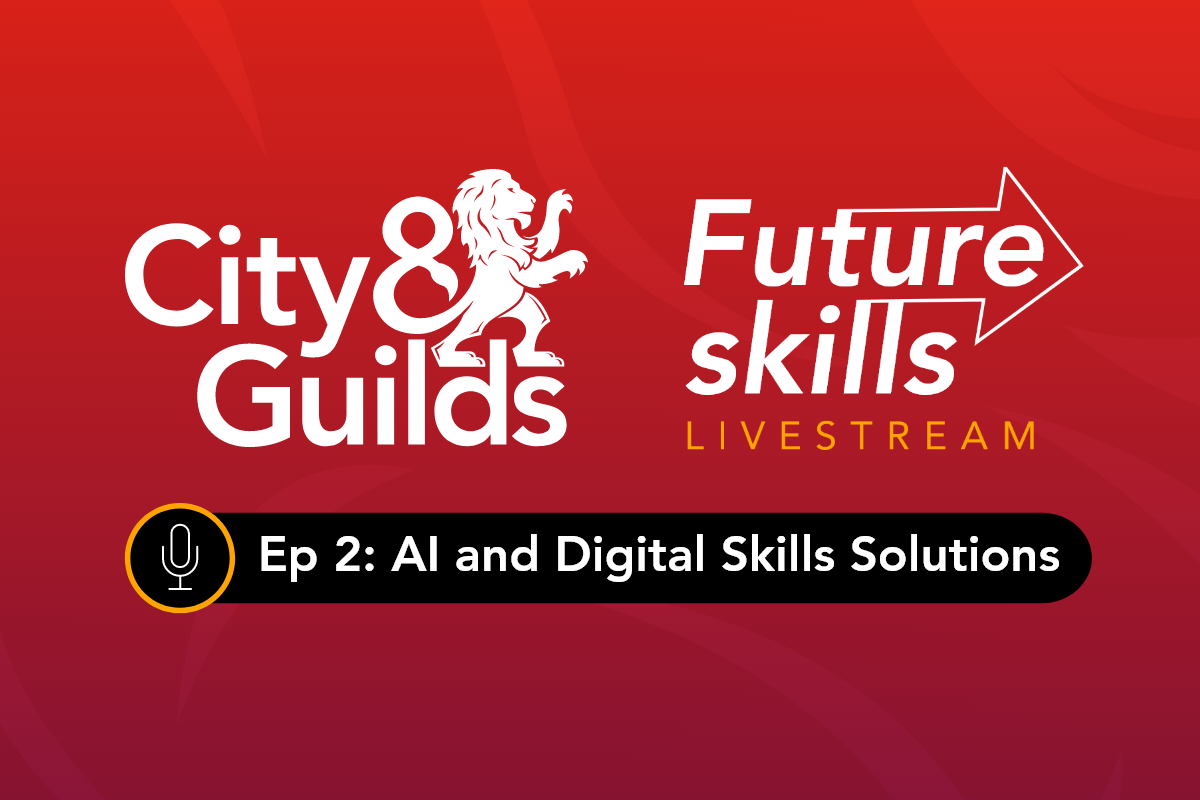Time to focus relentlessly on careers, skills, and future prospects

The start of the New Year brings new opportunities and challenges. For individuals and our national economy, it is a crucial time to focus on careers, skills, and future prospects.
The labour market is changing rapidly. Employers are unable to fill a quarter of job vacancies due to skills shortages, which are worse in some sectors than others. Skills make an important contribution to productivity, but our skills system lags behind international competitors in key areas – particularly in technical skills and good quality careers support for young people and adults. Ongoing industrial disputes highlight the discontent and disconnect between how government and citizens view modern careers, skills and prospects.
Over the last decade, government and policy areas have become increasingly fragmented. There are “at least 49 national employment and skills-related schemes or services managed by nine Whitehall departments and agencies” (LGA, 2022).
Five big trends and policy challenges to be met in Britain in 2023 include:
- Wages and other benefits in the world of work are becoming may less secure, leading to financial uncertainty for more Britons.
- There are challenges to conventional government supports to address basic needs, including how to make a decent livelihood.
- The gap between traditional education systems and the labour market could grow with increasing automation and digitisation, inadequately preparing Britain’s workforce for meaningful participation in the future world of work.
- Less access to opportunities from the changing labour market could well favour wealthy, highly educated, and urban workers, and disfavour vulnerable, non-urban, and marginalised populations; and
- Systems that track user experiences and outcomes (with ratings of others’ performance) could become more common, shaping human interactions, work prospects, and relationships, which could potentially lead to identity loss and further marginalisation of those most vulnerable.
Time to reflect on lessons from history at the turn of the 20th Century.
Work moved from farms to cities and people followed (many of them youth with no family supports) with major problems in housing, poverty and safety in urban centres. England’s William Booth, The Salvation Army founder, developed several labour registries (i.e., places for the unemployed to find job postings). In the US, Frank Parsons recognised that the process of entering the work world was beginning to shift such that far more people would be able to choose the type of work they did and make this choice within an increasingly wide array of options. Parsons assessed that individuals needed help in “choosing a vocation.” In the UK, Ogilvie Gordon, for example, developed plans for the “Educational Information and Employment Bureaux” to be open to help young people transition from school to work.
The Prime Minister and Conservative Party want us all “to help grow the economy, creating better-paid jobs and opportunity right across the country.” Sir Keir Starmer and the Labour Party want “to give Britain its future back”. A fundamental question, is where are the trustworthy places for individuals to go for career information, advice and guidance?
Some key facts:
- Fewer adults are returning to education to develop new skills, and there is less training available in work. For example, only 10% of all UK adults aged 20-45 hold a Level 4/5 qualification as their highest, compared to around 20% of adults in Germany, and 34% in Canada.
- For young people, the Children’s Commissioner’s office highlights concern about the lack of career guidance, including services for vulnerable groups. In The Big Ask children said they want to work hard and do well in life. They are ambitious and spoke in terms not just of jobs, but careers. A good job or career was the most common priority for 9–17-year-olds when they grow up and they worry about the prospect of this.
- For children, a new careers programme for primary schools covering 55 Education Investment Areas will concentrate mainly on co-ordination activities in 8%-13% of schools. How this will be delivered in schools, complementing work already undertaken by well-established charities, local councils and other private companies, has yet to unfold.
Citizens have been let down by careers, skills and future prospects support available to them
Citizens across England have been let down by central government on the level of careers, skills and future prospects support available to them. This is recently evidenced by written and oral evidence to the Education Select Committee Inquiry into Careers Education, Information, Advice and Guidance highlighting fundamental differences in service delivery and levels of school finance available for impartial career guidance. The government’s response to the consultation on access to schools for education and training providers is a step in the right direction. But signposting and reliable signals to opportunities and options are weak.
The Prime Minister and David Blunkett’s vision for learning and skills for economic recovery, social cohesion and a more equal Britain have surprisingly something in common – a reference to impartial career guidance from highly trained and specialist advisers is missing – either intentionally or unintentionally. This is at odds with other UK, European and international effective career support and skills systems highlighted by the OECD, ILO, ETF and UNESCO.
We can and must do more. The march for progress will continue. This requires a great deal more effort to achieve support for individuals, families, and businesses to thrive and prosper over the next decade.
Four ideas to stimulate more action:
- The development of the National Careers Service and Careers and Enterprise Company (CEC) should be assisted by the creation of an Employer-led Advisory Board comprising senior representatives from employers, education and the career development profession to help guide the work and ensure it delivers value for money and meets the needs of young people, adults and employers.
- Digital advancements in careers support for children, young people and adults (with opportunities to speak with a human adviser). A new OECD Observatory on the use of Digital technologies in Career guidance for Youth (ODiCY) is bringing together key policy documents, research studies and advice and guidance from global experts. At the heart of the observatory will be a library of case studies from around the world to help compare how people in different countries have used digital technologies to enhance career guidance interventions. CareerChat (UK) is encouraging people across England (including young people and adults) to become more confident in career exploration using a careers chatbot, powered by AI and machine learning.
- Close the gap in understanding of how jobs and the world of work are changing, new technical and higher-level routes and support the growing cohort of people stuck in the middle and bottom of poorly paid precarious work and unemployment. Moving beyond useful LEO data on tracking outcomes, to finding out more about contemporary meanings of ‘career’ and ‘changes in career development’ with futuristic approaches. For example, how these changes will shape
- the individual’s needs for services
- the nature of career development services
- the roles and competencies of career development and employability practitioners, and
- the gaps now and what will be required in the future.
- Nurture talent and skills starting in primary schools and beyond, including core maths skills, alongside investment in careers support during and beyond student life to translate into longer-term skills and ultimately career success.












Responses